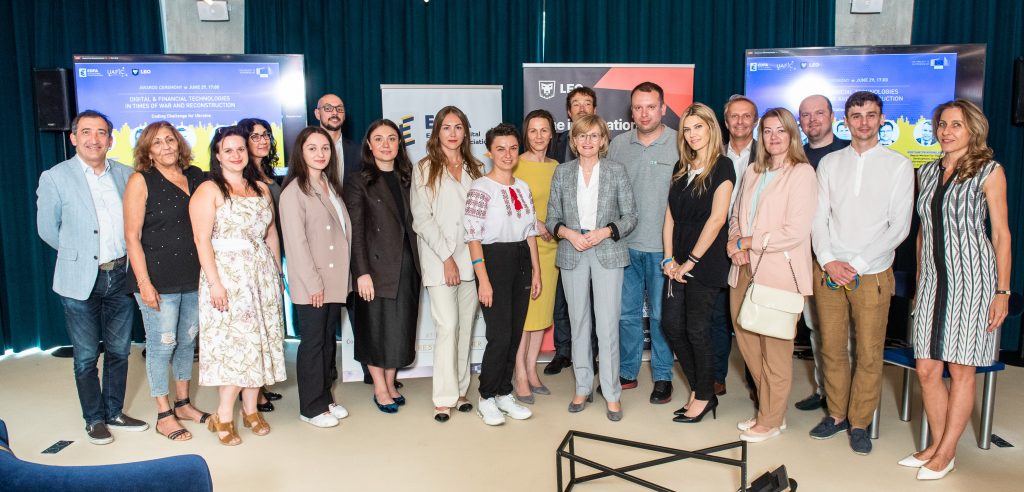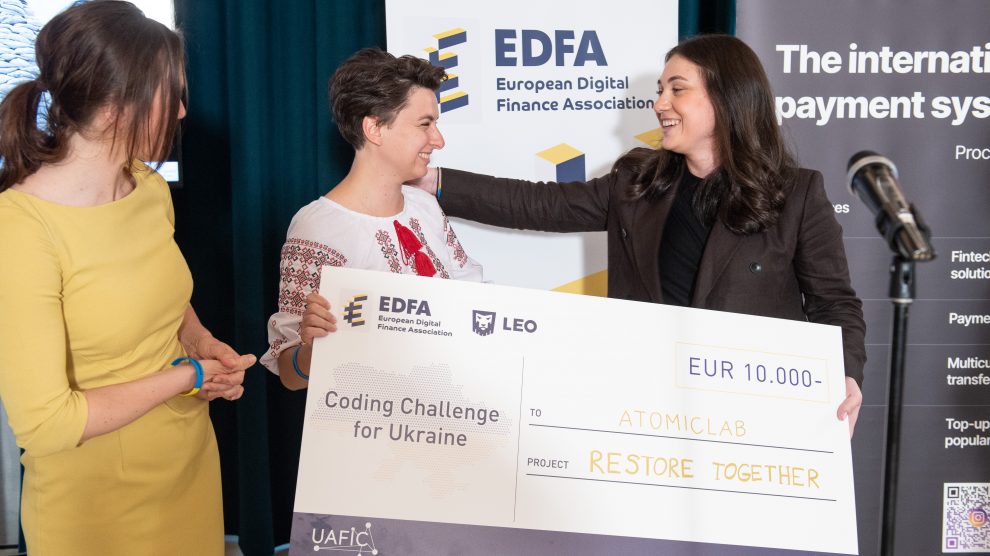How the European Commission, UAFIC and EDFA worked together to find the best fintech solution for Ukraine.
A solution aimed at restoring Ukraine’s cultural monuments destroyed during the war with Russia has won Coding Challenge for Ukraine, a hackathon designed to mobilise experts, programmers, and cool start-ups to develop technological solutions to help refugees, internally displaced persons and rebuild the country’s economy.
The hackathon, which took place this week in Brussels, was organised by the European Commission in cooperation with the Ukrainian Association of Fintech and Innovation Companies (UAFIC) and the European Digital Finance Association (EDFA).
It attracted around 30 teams from different countries, which were narrowed down to six finalists, ATERMON, CodeDefenders, OffZmi, Sigma Software, SOS Civil Defence Headquarters and eventual winners AtomicLab.
AtomicLab’s platform – which earnt the team 10,000 euros in prize money – will bring together investors who can finance the reconstruction of the buildings, monuments and cultural heritage with contractors who can fulfill the restoration order. It combines NFT-funded investor attraction, an NFT-gallery with filters, and artist rating all on one platform.

Vital initiative
“Coding Challenge for Ukraine is a vital initiative of intelligent people bringing together dozens of comprehensive ideas,” says Alyona Shevtsova, CEO of the international payment system LEO, which sponsored the event.
“LEO supported this hackathon because it is a priority for Ukraine to integrate fast into the European economy, show our capabilities, and help vulnerable social groups.”
The award ceremony in Brussels was attended, among others, by Mairead McGuinness, European Commissioner for Financial Stability, Financial Services and the Capital Markets Union, who said that, “I think the very idea and the reason we’re here today is manifold, but really to support Ukraine. This is a fantastic initiative.”
“Since 2014, Ukraine has made immense progress and last week’s announcement from the Council about [EU] candidate status is really a recognition of that progress. But of course everybody needs to do more, and we’re here to help.”
Eva Kaili, Vice-President of European Parliament and also an attendee of the event, added: “We are acting in a positive manner, creating positive disruption and supporting start-ups and trying to find hope inside this situation of having a war in Ukraine and at the European borders. So for me it’s an honour to be here.”
This content has been produced in collaboration with an Emerging Europe partner organisation.

